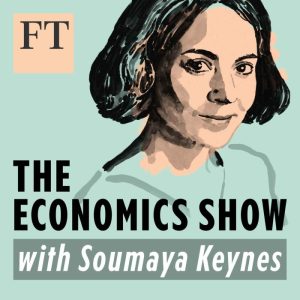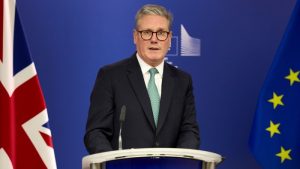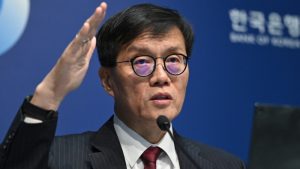Merkel’s memoir reveals her blind spots on Russia
Unlock the Editor’s Digest for free
Roula Khalaf, Editor of the FT, selects her favourite stories in this weekly newsletter.
The writer is editorial director and a columnist at Le Monde
In her memoir, Freedom, Angela Merkel recalls a conversation she had with Vladimir Putin about her opposition to Ukraine and Georgia joining Nato. “You will not be chancellor forever,” he told her. “And then they will become Nato members. And I want to prevent that.” Merkel could not help but think: “You will not be president forever either.”
Merkel retired as Germany’s chancellor in 2021, an icon of stability in the west after 16 years in office. Putin is still president, showing no intention of leaving. He is also the biggest threat to her legacy. Her book would have been very different had the Russian leader not launched a full-scale invasion of Ukraine on February 24 2022. Germany was shaken to the core, the pillars of its success suddenly vulnerable. Could Merkel have been wrong? Putin happens to be the most often mentioned foreign leader in her memoir. This is no coincidence: she had some explaining to do.
She does try, honestly. But as Margaret Thatcher would have said, the lady is not for turning. In three crucial episodes of Germany’s relationship with Russia, her version of events does not correspond to reality.
Merkel’s fascinating account of the battle at the Nato summit in Bucharest in 2008 — where, with French president Nicolas Sarkozy’s help, she defeated George W Bush’s attempt to get Ukraine and Georgia into the alliance — carefully avoids establishing a link between this pivotal moment and the invasion of Georgia by Russian forces four months later. Her point, she writes, was that it would take at least five years for the two nations to be ready to join Nato and that the risk of Putin using that gap to attack them while unprotected was too high.
But this is exactly what he did. To Merkel, the compromise reached in Bucharest, which Ukrainians now sum up with the phrase “the door of Nato was open but we were not invited”, prevented the alliance from tearing itself apart, showed the efficiency of the Franco-German tandem and the unity of her coalition government. That she refuses to consider that Putin interpreted this lack of resolve from Nato members as a green light to attack Georgia a few months later and Ukraine in 2014, is mind-boggling.
She is more vexed by the annexation of Crimea and tells of her shock when Putin, whom she called to ask if the “little green men” taking over the Ukrainian peninsula were Russian troops, blatantly denied it. “A barefaced lie,” she reckons.
She also admits to being depressed by Russia’s intervention in the Donbas in 2014. Yet again, in her view, compromise and negotiation had to prevail; a military solution was out of the question. She exposes the Russian negotiators’ dirty tricks during the painstaking Minsk process and the constantly violated ceasefires. She feels the anguish of then president Petro Poroshenko at seeing his troops massacred in eastern Ukraine. But she never questions Barack Obama’s decision to forgo any military aid to the besieged Ukrainians. She played a crucial role in getting the Europeans to adopt and renew sanctions against Russia — as long as they didn’t affect oil and gas.
Most revealing in this memoir is what Merkel does not say. On the third issue, Germany’s dependency on Russian gas, she points out that she inherited the first Nord Stream pipeline from her predecessor Gerhard Schröder, but omits to say that she supported his appointment as chairman of the board of the Gazprom subsidiary. She acknowledges that Poland and Ukraine were critical of Nord Stream but only, she thinks, because they lost on transit fees. Geopolitics elude her. She also fails to mention that her own diplomatic adviser, Christoph Heusgen, thought Nord Stream 2 was a bad idea and told her so.
This is where she lets out a whiff of resentment at the “violence” of the blame directed towards her. It is now known that she privately confided to some of her fellow European leaders the pressure she felt from the powerful German industry lobby, which actively courted the Kremlin to keep cheap Russian gas flowing; but she is too principled to share the blame in her book. Also unmentioned is the fierce battle her government waged in Brussels against the European gas directive in order to save Nord Stream.
Putin lied, he was rude and always late, but Russia was always going to be there. Merkel spent her first 35 years in East Germany under a communist dictatorship trying to live a decent life without betraying her decency; she ended up, as chancellor, grappling with a post-Soviet dictator whom she loathed but was reluctant to provoke. This was the ultimate compromise.
#Merkels #memoir #reveals #blind #spots #Russia




